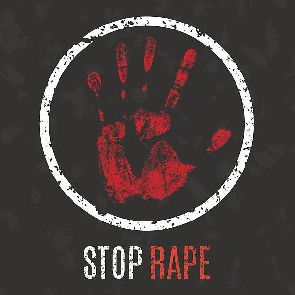On Monday, June 15, 2020, a story of a 3-month-old baby who had been raped started a conversation in Ghana on Twitter.
The innocent baby who had barely spent 100 days on this earth was subjected to the cruelty of just being a girl even before she could find her way around her new environment.
She was left with a host of deformities that could trouble the rest of her life in the hopeful chance that she survives.
This 3-month-old baby had not learned how to dress to supposedly entice the rapist to rape her as has mostly been given as the stupid excuse it truly is. She did not know how to speak to even make her no mean "try harder". She could not walk to be asked: "why were you in his room?" But she was raped and left struggling for her life. A case in point to prove rapist rape not because their victims made them, but because they are rapists and must be dealt with as such.
The definition of rape has always been clear as a type of sexual assault usually involving sexual intercourse or other forms of sexual penetration carried out against a person without the person’s consent. Consent is when a person voluntarily agrees to the proposal or desires of another.
However, the discussion around consent goes deeper with various degree of circumstances and the laws of the land.
In Ghana’s Criminal Offences Act, 1960, consent is not specifically addressed in relation to rape cases. However, it has provisions in the twenty-ninth Act which explains consent with Section 14 headlined ‘Provisions Relating to Consent’ coming close to the context.
Section 14(a) reads:
“A consent is void if the person giving it is under twelve years of age, or in the case of an act involving a sexual offence, sixteen years, or is, by reason of insanity or of immaturity, or of any other permanent or temporary incapability whether from intoxication or any other cause, unable to understand the nature or consequences of the act to which he consents".
With the lack of understanding of what rape means by many, excuses and victim-blaming has almost always been the order of the day and wrongly so.
As Ghanaian women began to tell their stories on Twitter, the depth of problems facing the fight against rape was laid bare.
One of the first things to downplay hearing the voices of women calling for a fight against rape was the talk around ‘men get raped too’. Of course, men get raped and that is not ok. Notwithstanding, if the talk around men getting raped comes up only when women are fighting for their rights and safety, it turns into a subtle way of not giving an f about the fight which loosely translates to ‘shut up about your rape’.
That, we can’t have in a society where women must feel safe for going about their normal life and talking about rape.
There have been several occasions when women have had to stop their pursuit for justice because the general public shamed them to think it was their fault. On other occasions, it has been a crime to go back to their trauma and seek justice because they did not know better at the time.
Scenarios regarding the rich and powerful cannot be underestimated when it comes to fighting and winning the battle against rape. Another hindrance tackling what has constantly ruined the lives and psychology of women in society is the jokes around the topic on social media.
With stakes high and a strong push to maybe finally make a breakthrough, there were jokes around Ghanaian women who may later find it difficult to find husbands because they called out their rapists. And then there were dumbfounding comments about getting wet while being raped. Utterly nonsense! The list goes on and on.
But there is hope.
Ghanaian women found their voices and addressed a situation that is ruining the society for girls and women. Despite the tirade of obstacles thrown at them, they persevered. In a bold move and one without fear and spare, some named their abusers.
Now is the time to protect the raised voice against rape in Ghana. Just as is in Nigeria, Ghana is no different.
The Ghana Police Service must endeavour to assist in taking the enormous pressure of the burden of proof falling on rape victims.
Domestic Violence & Victim Support Unit (DOVVSU) in Ghana must put in measures in place to facilitate easy reporting of rape cases devoid of the stigma and shaming that has long been a discouraging factor.
In the grand scheme of things, citizens in Ghana must do better. Parents must be supportive. Church leaders must hear the voice of young women disregarding the power play in various churches. Schools must have a system that works for the girl child. Men must act right in all circumstances. Society must hear the rape cries of women for a better Ghana.
Without excuses, without blame and without shame, SAY NO TO RAPE!
Editorial News of Wednesday, 17 June 2020
Source: pulse.com.gh

















